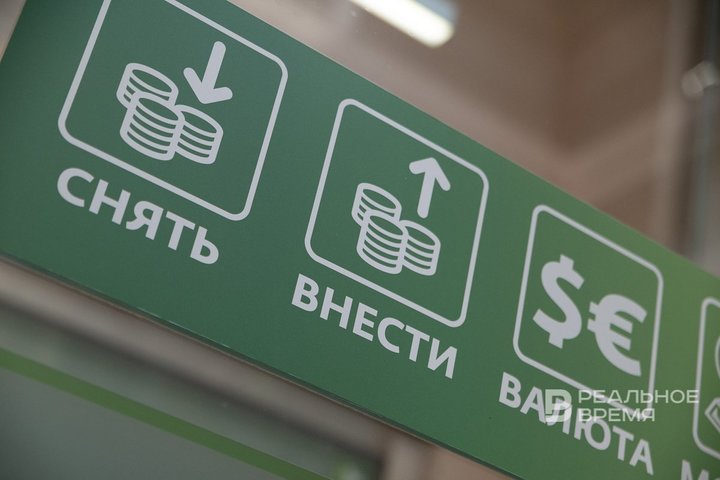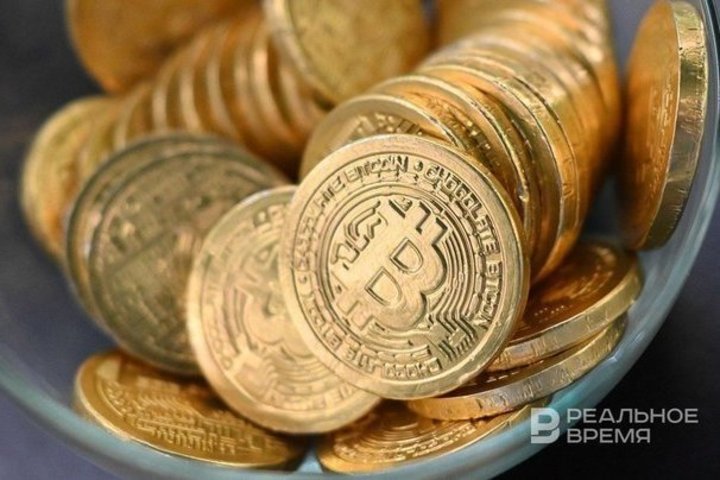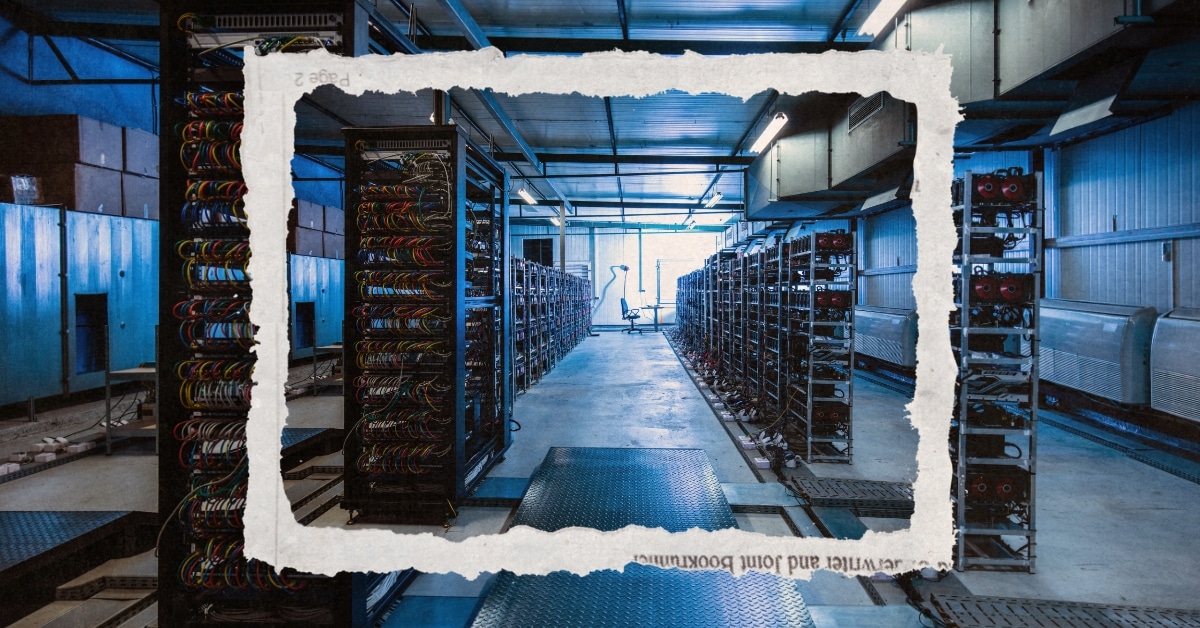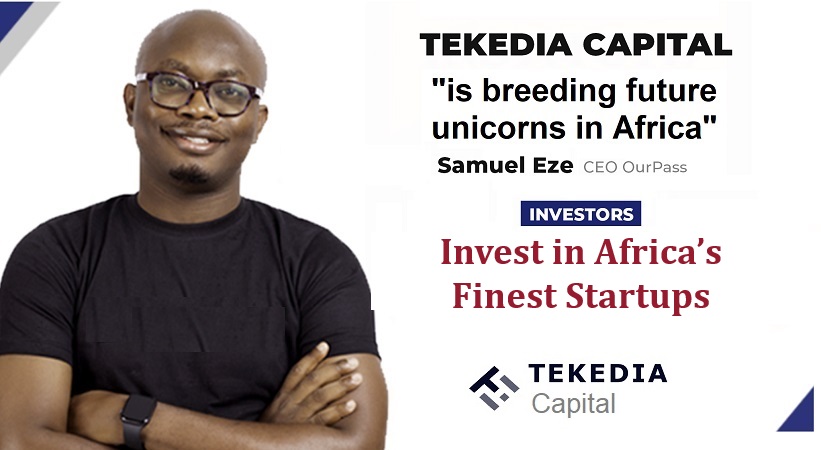News
Tatarstan proposes to solve the problem of foreign transfers with cryptocurrency — RealnoeVremya.com

The idea of creating a mining center in the republic begins to acquire details
Photo: Реальное время
Today more than 50% of importers have problems with payments in foreign currency. Basically, Russian businesses complain that foreign banks are not ready to accept payments from Russia, correspondent banks refuse to process them, and domestic banks are disconnected from the SWIFT system. In Tatarstan they want to solve the problem by legalizing international payments with cryptocurrency. The ideologues of the project expect to attract large mining companies to the region by promising them a special legal regime, in exchange for paying for the supply of equipment with “pure cryptocurrency”. Deputies of the Russian State Duma, the regional Ministry of Industry and Trade and the Ministry of Finance participated in the discussion of the project. For more information on alternative international agreements, see Realnoe Vremya’s material.
Failed payments
Last year, more than half (52%) of Russian importers faced problems with cross-border payments in foreign currency. This figure increased by 10 percentage points compared to 2022, according to a survey conducted by the Center for Foreign Trade at the Russian Ministry of Industry and Trade.
The study involved around 200 companies of various sizes, from micro businesses to large ones. The interviewees work in different sectors: a quarter of the companies specialize in mechanical engineering and chemistry, another part produces electrical equipment and metal products. Survey participants indicated the main problems encountered with cross-border payments: a foreign bank is not willing to accept payments from Russia (42%); a correspondent bank refuses to process such payments (17%), a Russian bank is disconnected from SWIFT — 13%.
 Last year, more than half (52%) of Russian importers faced problems with cross-border payments in foreign currency. Максим Платонов / realnoevremya.ru
Last year, more than half (52%) of Russian importers faced problems with cross-border payments in foreign currency. Максим Платонов / realnoevremya.ru
Officially the authorities do not like to comment on such requests. The Ministry of Industry and Trade of the Republic of Tatarstan preferred to refrain from commenting on difficulties with international agreements. The Tatarstan Affairs Ombudsman’s Office also noted that the issue cannot be resolved at the regional level.
“It’s disconcerting”
Artur Nikolaev, the first vice-president of the Tatarstan Chamber of Commerce and Industry, confirmed to Realnoe Vremya that the problem with international payments really exists. “It concerns many companies that carry out economic activities abroad. But to a greater extent, of course, imports, especially imports of high-tech equipment. There are codes, for example OKVED 84, which are subject to sanctions, and here difficulties arise at all stages: logistics, document management and financial component.”
 “Business is business about finding ways out of difficult situations. Almost everyone today finds ways and routes to pay. Of course, I don’t want to reveal these options,” Nikolaev commented. “In fact, it’s like a puzzle. There is no magic wand to wave and all decisions are made. Every time you have to solve problems in a new way.”
“Business is business about finding ways out of difficult situations. Almost everyone today finds ways and routes to pay. Of course, I don’t want to reveal these options,” Nikolaev commented. “In fact, it’s like a puzzle. There is no magic wand to wave and all decisions are made. Every time you have to solve problems in a new way.”
“Perhaps, as a result, there is an increase in the cost of services, because the work does not go directly, but this does not seriously complicate the business,” adds Nikolaev.
The main directions of Tatarstan are now China and Turkey, and today there are precisely the greatest difficulties. “But there are no dead ends. Although this year has become more difficult”, admits the vice president of the Chamber of Commerce and Industry. “Nevertheless we see that imports are increasing significantly, especially from China. For example, I was at the Canton Fair (China’s Fair of Imported and Exported Goods) and it drew attention to the huge number of Russians who came to pick up equipment or technology.”
We need a cryptocurrency that is not involved in gray schemes
The founder of the cryptopolygon in Tatarstan, Yakov Tenilin, told Realnoe Vremya that the topic of the use of vaults in international settlements is now actively being resolved in Tatarstan. “A working group called Tatarstan Mining Center has been created, and within this working group there is an initiative to create a mining operator on the territory of the republic within the framework of a special legal regime,” he said . The working group includes deputies of the Russian State Duma representing Tatarstan, representatives of the Ministry of Industry and Trade of the Republic of Tatarstan and the Ministry of Finance of the Republic of Tatarstan and representatives of Bogatye Saby, in particular Chief Rais Minnikhanov , listed in Tenilin.
 The topic of using crypts in international settlements is currently being actively studied in Tatarstan. Максим Платонов / realnoevremya.ru
The topic of using crypts in international settlements is currently being actively studied in Tatarstan. Максим Платонов / realnoevremya.ru
The cryptocurrency obtained through mining is, according to him, the purest, not involved in any gray schemes and therefore can be used in international agreements.
According to the ideologists of the project, the tasks of the mining operator will include the development of infrastructure in Tatarstan, monitoring the activities of miners and organizing communication between miners and electricity suppliers. “At the same time, it is planned to create a structure that will accumulate liquidity for the use of cryptocurrencies in international agreements. It will be engaged in the acquisition of cryptocurrencies from miners in exchange for rubles,” explains Tenilin. “Today, within the framework of the federal law, the adoption of which is expected in early autumn, miners can trade cryptocurrency only on exchange platforms This is difficult for mining companies: they have to trade cryptocurrency on a foreign platform, then turn it into fiat currency and import it into Russia. What we offer will make life easier for miners.”
 “The mining operator will have the opportunity to sell cryptocurrency to industrial companies and act as their payment agent. When an enterprise purchases equipment, on its behalf the supply of the equipment can be paid for in cryptocurrency,” explains Tenilin. “The industrial enterprise does not initiate any wallets, does not operate with cryptocurrency and reduces the likelihood of further currency control.”
“The mining operator will have the opportunity to sell cryptocurrency to industrial companies and act as their payment agent. When an enterprise purchases equipment, on its behalf the supply of the equipment can be paid for in cryptocurrency,” explains Tenilin. “The industrial enterprise does not initiate any wallets, does not operate with cryptocurrency and reduces the likelihood of further currency control.”
Haram or halal?
The attitude towards cryptocurrencies and mining in the Muslim world is contradictory, it is still discussed whether mining is haram or halal, recalls Maxim Osadchy, head of the analytical department of BKF bank.
 ‘In particular, Sheikh Haytham al-Haddad opposes mining, as mining involves the creation of money out of thin air, which he considers unacceptable under Sharia law. When Muslims finally classify cryptocurrencies and mining as halal from the point of view of Sharia, then it will be possible to return to the issue of mining in Tatarstan,” the analyst believes.
‘In particular, Sheikh Haytham al-Haddad opposes mining, as mining involves the creation of money out of thin air, which he considers unacceptable under Sharia law. When Muslims finally classify cryptocurrencies and mining as halal from the point of view of Sharia, then it will be possible to return to the issue of mining in Tatarstan,” the analyst believes.
According to him, one of the banks of Tatarstan is actively participating in the digital ruble test.
Today, Tatarstan’s business uses the vault indirectly, Artur Nikolaev admitted. “For example, in Türkiye all this is legalized. In principle, if a company has such a need, it can send a crypto to Turkey and there a person will exchange it for a lira. There are countries where cryptocurrencies are legalized and to some extent this simplifies interaction for companies. But, on the other hand, we have to consider how risky it is,” he warns. “Companies will probably use these tools more and more. There is a growth trend here.”
At the same time, in his opinion, it will be difficult to legalize the crypt in a single Tatarstan: “The legislation should be uniform.” «It will be difficult to make a ‘pilot’, as, for example, for halal finance. Crypta is a slightly different story and it will be very difficult to identify different regions to test it. There should still be a single space,” Nikolaev believes.
Yulia Garaeva
News
US Cryptocurrency Rules Delayed by ‘Never-Ending’ Lawsuits

Ripple CEO says cryptocurrency industry still seeking regulatory clarity from US
Speaking to Bloomberg News on Wednesday (July 17), Author: Brad Garlinghouse he said America is behind behind other countries which have already adopted cryptocurrency regulations.
“What we’re seeing, where it’s the UK, Japan, Singapore… even the European Union, more than two dozen countries have come together to provide a framework for cryptocurrency regulation,” Garlinghouse said.
“It’s frustrating that we as a country can’t get that regulatory framework in place. And instead, we have this never-ending lawsuit coming from the SEC that doesn’t really address the problem.”
Ripple has been the target of some of these legal disputes. Securities and Exchange Commission (SEC) sued the company in 2020, accusing it of conducting a $1.3 billion operation offering of unregistered securities tied to its XRP token.
However, last year a judge ruled that only Ripple’s institutional sales of XRP, not retail sales, violated the law, a decision widely seen as a victory for the cryptocurrency industry.
As PYMNTS noted at the time, that ruling has “far-reaching repercussions impact across the digital asset ecosystem, which has long maintained that its tokens do not represent securities contracts.”
However, Garlinghouse told Bloomberg on Wednesday that the company cannot wage multimillion-dollar legal battles over each token.
He spoke to the news agency from the Republican National Convention in Milwaukee, where the party is backing the candidacies of former President Donald Trump and Ohio Sen. J.D. Vance, both of whom are considered pro-cryptocurrency.
But Garlinghouse argued that cryptocurrencies “should not be a partisan issue,” and noted that he had recently attended a conference in Washington that included Democrats, including White House officials.
“I think they were there, listening to the industry… it was refreshing to start having that conversation,” she said.
President Joe Biden earlier this year he vetoed a measure which would have ended the SEC’s special rules for crypto-asset custodians. This legislation was supported by both the digital asset industry and the banking industry.
Ripple early this year donated $25 million to the cryptocurrency industry’s super PAC Fair Smoothiewith Garlinghouse stating at the time that such donations would continue every year, as long as the industry had its detractors.
Second Open SecretsWhich monitor spending For campaigns, the PAC has spent $13.4 million this year, much of it to help defeat Rep. Katie Porter’s (D-Calif.) U.S. Senate campaign.
News
The Future of Cybersecurity in the Cryptocurrency Industry

The cryptocurrency space has had a tumultuous journey, with its fair share of ups and downs. As we look to the future, one area that remains a constant focus is cybersecurity. The digital nature of cryptocurrencies makes them inherently vulnerable to cyber threats, and as the industry evolves, so does the landscape of potential risks.
In 2022, the cryptocurrency market faced significant challenges, with over $2 trillion in market value lost. This event served as a wake-up call for the industry, highlighting the need for robust cybersecurity measures. The future of cryptocurrency security is expected to see a shift towards more regulated and established institutions taking the reins of crypto technology and blockchain infrastructure.
The decentralized nature of cryptocurrencies offers numerous benefits, such as transparency and financial inclusion. However, it also introduces unique security challenges. The risk landscape is filled with threats such as hacking, phishing, ransomware attacks, malware, and social engineering. These threats not only lead to financial losses, but also damage the reputation and trust within the cryptocurrency ecosystem.
Mini-MBA Tekedia edition 15 ((September 9 – December 7, 2024) started recordings; Register today for discounts reserved for early bird customers.
Tekedia AI in Business Masterclass Opens registrations Here.
Join the Tekedia Capital Syndicate and IInvest in Africa’s best startups Here.
The decentralized nature of cryptocurrencies offers many benefits, but it also presents unique security challenges. Cyber risks such as hacking, phishing, and ransomware pose threats to the integrity of digital assets. The infrastructure that supports cryptocurrencies is not immune to vulnerabilities, including smart contract flaws and exchange hacks.
To address these vulnerabilities, the infrastructure that supports cryptocurrencies must be strengthened. Smart contract vulnerabilities, exchange hacks, wallet breaches, and flaws in the underlying blockchain technology are significant concerns that must be addressed to ensure the security and integrity of digital assets.
As cybercriminal tactics and techniques become more sophisticated, the cryptocurrency industry must stay ahead of the curve. The future will likely see more targeted attacks, exploiting weaknesses in infrastructure, networks, and human factors. This requires a proactive and multifaceted approach to cybersecurity.
To mitigate these risks, several measures must be adopted:
Strengthening security measures: Developers, exchanges, and wallet providers must improve security protocols, use strong encryption, implement multi-factor authentication, and conduct regular security audits.
Education and awareness: Users should be educated on best practices for protecting their digital assets, including using strong passwords, recognizing phishing attempts, and using hardware wallets for secure storage.
Looking ahead, the cryptocurrency industry is expected to see an increased focus on robust security measures. Blockchain projects and exchanges are likely to invest in advanced encryption techniques and decentralized storage solutions to protect user assets. The future impact of cyber risk on cryptocurrencies will depend on the collective efforts of stakeholders to address vulnerabilities and strengthen security measures.
Collective efforts by stakeholders in the cryptocurrency space are crucial to address vulnerabilities and strengthen security measures. While challenges persist, advances in cybersecurity technologies and practices offer hope for a more secure and resilient cryptocurrency ecosystem.
The future of cybersecurity in the cryptocurrency industry depends on finding a balance between innovation and regulation. It requires a collaborative effort from all parties involved, from developers to end users, to create a secure environment that fosters trust and growth in the industry. As we move forward, it is critical that lessons learned from past events guide the development of stronger security measures, ensuring the longevity and stability of cryptocurrencies as a vital part of the modern economic toolkit.
Like this:
Like Loading…
News
Bullish XRP and RLBK price predictions rise, outpacing the broader cryptocurrency market, prompting Shiba Inu holders to switch!

Bitcoin’s one-week surge from $60,000 has pushed other cryptocurrencies into an uptrend. However, for many altcoins, this trend has been temporary. Altcoins such as XRP and Shiba Inu (SHIB) have experienced price drops. However, Rollblock, a new altcoin on the Ethereum blockchain, has thrived during this period, attracting thousands of investors looking for long-term growth.
XRP’s Nearly 30% Growth Over Last Week Drops as Selling Pressure Increases
XRP is seeing further price decline as Ripple investors withdraw their profits from the token. The surge in XRP’s price to $0.64 in the past week has provided investors with a perfect opportunity to increase their returns in the short term. With the ongoing sell-off in XRP, XRP has jumped over 8% in the past day and is now trading at $0.59. However, analysts tracking XRP indicators predict that XRP could still extend its gains by over 30% in the coming weeks.
Shiba Inu (SHIB) marks its third consecutive day of losses
Shiba Inu (SHIB) is in a period of adjustment after a week of strong gains. In the last 24 hours, SHIB has seen a jump of over 7%, reflecting a natural market fluctuation. Analysts are observing a death cross on the Shiba Inu chart, which historically signals the potential for future opportunities as the market stabilizes. As investors explore new possibilities, some are diversifying into promising altcoins like Rollblock (RBLK) to strategically rebalance their portfolios and capitalize on the emerging trend.
Rollblock (RBLK) Up Another 7% as New Investors Join Pre-Sale
Rollblock (RBLK) has taken the cryptocurrency market by storm, having attracted investors from more popular altcoins like Shiba Inu (SHIB) and XRP. Rollblock’s growth is attributed to its utility in the $450 billion global gaming industry.
Rollblock aims to use blockchain technology to bridge the gap between centralized and decentralized gambling. With blockchain technology, Rollblock secures every transaction in its online casino, providing transparency and convenience to millions of players who are uncomfortable placing bets on other iGaming platforms.
This innovative use of blockchain technology in the industry has grown Rollblock to over 4,000 new users in less than two months. With plans to add sports betting, this number is expected to grow exponentially in Q3.
Rollblock uses a revenue sharing model that splits up to 30% of its casino’s weekly profits with token holders. This happens after Rollblock buys back $RBLK from the open market and uses half of it for rewards. The other half is burned to increase the price of $RBLK.
Rollblock price has seen four increases in the past month with $RBLK tokens now selling for $0.017. Analysts predict that at the current growth rate, Rollblock could increase by over 800% before the presale ends. For investors looking for a long-term token with growth potential, phase four is the best time to buy Rollblock before its price skyrockets!
Discover the exciting Rollblock (RBLK) pre-sale opportunities now!
Website:https://Rollblockpresale.io/
Social: https://linktr.ee/Rollblockcasino
No spam, no lies, just insights. You can unsubscribe at any time.
News
Texas Crypto Miners Turn to AI as Crypto Declines

As cryptocurrency mining becomes less profitable, Texas cryptocurrency mining companies are switching to supporting artificial intelligence companies.
Bitcoin miners, with their sprawling data centers and access to significant energy resources, are ideally suited for computationally intensive AI operations, and as cryptocurrency mining becomes less profitable, companies see this shift as a logical answer to their problems.
On Thursday, Houston-based Lancium and Denver-based Crusoe Energy Systems announced a multibillion-dollar deal to build a 200-megawatt data center near the West Texas city of Abilene to support advanced artificial intelligence applications such as medical research and aircraft design, CNBC reported. The plant represents the first phase of a larger 1.2 gigawatt project.
Lancium and Crusoe’s move into AI mirrors a broader trend among bitcoin miners. The combined market capitalization of the top U.S.-listed bitcoin miners hit a record $22.8 billion in June. Companies like Bit Digital and Hut 8 are diversifying into AI, with Bit Digital securing a $92 million annual revenue deal to supply Nvidia GPUs and Hut 8 raising $150 million to expand its AI data center.
But the growing popularity of these operations also presents challenges, particularly for the Texas power grid. Last month, the Electric Reliability Council of Texas announced that the state is expected to nearly double its energy production by 2030 to meet the high energy demands of data centers and cryptocurrency operations.
Lieutenant Governor Dan Patrick expressed concern about the projections.
“Cryptocurrency miners and data centers will account for more than 50% of the additional growth. We need to take a close look at these two sectors,” He wrote on Twitter/X. “They produce very few jobs compared to the incredible demands they place on our network. Cryptocurrency miners could actually make more money selling electricity to the network than they do from their cryptocurrency mining operations.”
Analysts predict significant growth in data center power capacity, which is expected to account for up to 9% of U.S. electricity consumption by 2030.
The operations also pose challenges for nearby cities. Earlier this month, TIME reported that a crypto-mining facility was seriously compromising the health of residents in the city of Granbury. TIME reported more than 40 people with serious health problems, including cardiovascular disease, high blood pressure and hearing loss. At least 10 of the residents needed to go to the emergency room or an urgent care facility.
The disturbances were caused by the extreme noise generated by the crypto-mining facility’s fans, which are used to keep the machines cool. While the proposed data center in Abilene would use liquid cooling systems, it’s still unclear whether the facility’s operations would pose a health risk to local residents.
-

 Nfts1 year ago
Nfts1 year agoShardLab Launches ZK-Based Tool for Digital Identity and NFT Vouchers
-

 News1 year ago
News1 year agoWallet recovery firms are abuzz as stranded cryptocurrency investors panic in the bitcoin boom
-

 Bitcoin1 year ago
Bitcoin1 year agoBitcoin, Ethereum, Solana and Cryptocurrency Markets Look Ready to ‘Send’ as Stars Align, According to Investor Chris Burniske
-

 Altcoins1 year ago
Altcoins1 year agoThree Altcoins Poised for Significant Growth in 2024: ETFS, OP, BLAST
-

 Altcoins1 year ago
Altcoins1 year agoAccumulate these altcoins now for maximum gains
-

 Nfts1 year ago
Nfts1 year agoOG Crypto Artist Trevor Jones Unveils Groundbreaking Collection of Ordinals | NFT CULTURE | NFT News | Web3 Culture
-

 Bitcoin1 year ago
Bitcoin1 year agoBillionaires are selling Nvidia stock and buying an index fund that could rise as much as 5,655%, according to some Wall Street analysts
-

 Videos9 months ago
Videos9 months agoKamala just won the boner! [Bad For Crypto]
-

 Videos1 year ago
Videos1 year agoLIVE FOMC 🚨 Could be CATASTROPHIC for Altcoins!
-

 News1 year ago
News1 year agoA Guide for Newcomers & Beginners – Forbes Advisor
-

 Videos1 year ago
Videos1 year agoAttention: a historically significant BITCOIN signal has just appeared!
-

 Videos1 year ago
Videos1 year agoSTOCK MARKET FUD! ⚠️ [Why This Is GREAT For Bitcoin Traders!]







